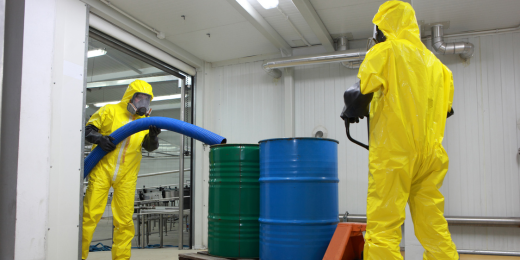The Ultimate Guide To Reclaim Waste
The Ultimate Guide To Reclaim Waste
Blog Article
What Does Reclaim Waste Do?
Table of Contents8 Simple Techniques For Reclaim WasteReclaim Waste Can Be Fun For EveryoneThe Main Principles Of Reclaim Waste Not known Factual Statements About Reclaim Waste Not known Incorrect Statements About Reclaim Waste
Check out the kinds, events, and kinds of liquid waste. Domestic sewer waste refers to the waste and items from a domestic septic tank. This kind of waste is produced by human beings in homes, schools, and other buildings. This only consists of septic tanks that have a drain area. The proper monitoring and disposal of domestic sewer waste require fluid waste to be transferred to a sewer treatment plant where the appropriate methods and devices are put on cleanse and get rid of waste.
Business waste typically consists of potential risks, such as combustible materials or a mixture of liquid and strong waste products, and needs an advanced and detailed disposal process. The disposal of commercial waste typically includes the filtration of waste prior to transport to make certain secure and proper disposal. Hazardous waste is developed from byproducts and overflow of industrial procedures and manufacturing.
This sort of waste can not make use of the very same sewer administration transport or processes as septic or industrial fluids. The industrial waste monitoring procedure calls for the inspection and screening of liquid waste before it undertakes the disposal process (liquid waste disposal melbourne). Overflow waste is the fluid waste that originates from runoff and excess stormwater in very populated locations or cities
Overflow waste can trigger contamination and flooding if not dealt with properly. Discover more concerning drain cleansing and waste management. Making certain correct waste monitoring can stop catastrophes and lower ecological injury. Both individuals in household settings and professionals in business or production markets can profit from understanding the procedures and guidelines of fluid waste administration.
A Biased View of Reclaim Waste
Contact PROS Solutions today to learn more about our waste management and disposal solutions and the correct ways to look after the liquid waste you create.
(https://reclaimwaste1.carrd.co/)This so-called 'wastewater' is not just a crucial resource however, after treatment, will be launched to our land, waterways or the sea. Utilized water from toilets, showers, baths, kitchen sinks, laundries and industrial processes is recognized as wastewater.

water used to cool equipment or tidy plant and devices). Stormwater, a kind of wastewater, is runoff that flows from farming and city areas such as roofs, parks, gardens, roadways, courses and gutters right into stormwater drains pipes, after rain. Stormwater streams untreated directly to neighborhood creeks or rivers, eventually reaching the sea.
The 45-Second Trick For Reclaim Waste
In Queensland, many wastewater is treated at sewage therapy plants. Wastewater is transported from domestic or commercial websites with a system of sewers and pump terminals, recognized as sewage reticulation, to a sewage treatment plant.
The Division of Natural Resources advises neighborhood governments about handling, operating and keeping sewerage systems and treatment try here plants. In unsewered locations, regional governments may call for homeowners to install individual or house sewer therapy systems to deal with residential wastewater from bathrooms, kitchen areas, shower rooms and washings. The Division of Natural Resources authorises making use of household systems when they are confirmed to be efficient.
In some new class, treatment of some stormwater to get rid of trash, sand and crushed rock has actually begun making use of gross pollutant catches. Wastewater treatment takes place in four phases: Removes strong matter.
Utilizes little living organisms knows as micro-organisms to break down and get rid of continuing to be dissolved wastes and fine bits. Micro-organisms and wastes are included in the sludge.
The Best Guide To Reclaim Waste
Nutrient elimination is not readily available at all sewage therapy plants due to the fact that it calls for pricey specialized tools. It is becoming more common in Queensland. Clear fluid effluent generated after therapy might still include disease-causing micro-organisms. If this effluent is released into rivers such as rivers or the sea, the micro-organisms will at some point pass away out.

This normally indicates wastewater has to be treated or impurities eliminated before it can be discharged to rivers. Many wastewater flows right into the sewage system. Under the Act, regional governments carry out authorizations and licences for environmentally pertinent activities (ERAs) entailing wastewater releases that might have a neighborhood effect. The department carries out authorizations and licences to Periods including wastewater launches that could have a regional or statewide influence.
Top Guidelines Of Reclaim Waste
Or else, samples are considered lab evaluation. Typically several tests are required to develop the levels of each of the different contaminants such as oils, hefty metals and pesticides in water. Tracking gives valid information about water high quality and can validate that permit problems are being met. The information obtained via surveillance provides the basis for making water quality decisions.
Report this page